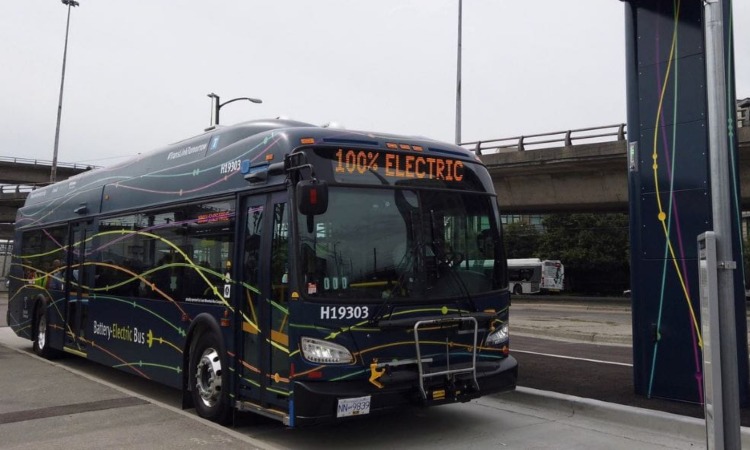TransLink releases plan to achieve net zero emissions by 2050
- Like
- Digg
- Del
- Tumblr
- VKontakte
- Buffer
- Love This
- Odnoklassniki
- Meneame
- Blogger
- Amazon
- Yahoo Mail
- Gmail
- AOL
- Newsvine
- HackerNews
- Evernote
- MySpace
- Mail.ru
- Viadeo
- Line
- Comments
- Yummly
- SMS
- Viber
- Telegram
- Subscribe
- Skype
- Facebook Messenger
- Kakao
- LiveJournal
- Yammer
- Edgar
- Fintel
- Mix
- Instapaper
- Copy Link
Posted: 5 December 2022 | Intelligent Transport | No comments yet
Building on its Climate Action Strategy that had been released in January 2022, TransLink’s new plan focuses on short-term actions that can be taken to address the climate crisis and advance the implementation of the overall strategy.


Credit: TransLink
TransLink has announced that it has released its Climate Action Plan, which outlines the steps over the next three years to help the organisation achieve net zero emissions by 2050 and expand its battery-electric bus fleet by 2025.
In January 2022, TransLink adopted its first-ever Climate Action Strategy, putting the transportation authority on the path to net zero emissions by 2050 and a 45 per cent reduction in greenhouse gases by 2030.
“While only one per cent of greenhouse gas emissions comes from public transit, we know it’s important to do our part to combat climate change,” said TransLink CEO Kevin Quinn. “Our aim is to reduce our emissions to zero, while also reducing the number of cars on the road; that’s why we’re taking these bold steps to demonstrate our leadership on the path to reaching net zero.”
TransLink’s new Climate Action Strategy maps path to net zero
The Climate Action Plan focuses on short-term actions to address the climate crisis and advance the overall strategy, including:
- Expanding the battery-electric bus fleet from four to 155 by late 2025 and installing new charging infrastructure to support
- Designing and constructing the new Marpole Transit Centre by 2027 to serve 350 battery-electric buses
- Renovating the Hamilton, Port Coquitlam and Burnaby transit centres to charge and store battery-electric buses
- Developing risk responses, design guidelines and new programmes to make transit infrastructure more resilient to climate impacts.
“We know people in Metro Vancouver want and need reliable, affordable and sustainable transportation throughout the region,” said British Columbia Minister of Environment and Climate Change Strategy and Minister responsible for TransLink George Heyman. “Our government is committed to expanding and accelerating the development of public transit, shifting away from fossil fuels, and building healthy, accessible communities for everyone. This Climate Action Plan is a key component of TransLink’s long-term approach to building climate resilient public transit and accelerating climate action right away, building to the goal of net zero operations by 2050.”
Given recent extreme weather events over the past two-years, TransLink’s Climate Action Plan accelerates climate action by detailing the steps to creating a climate-resilient and net zero emissions public transit system throughout Metro Vancouver.
If you liked this, you may also be interested in:
▶ Translink Metro’s contactless payments hit one million milestone in Belfast
▶ Government of Canada invests in battery-electric bus pilot in Barrie
Related topics
Air Quality, Alternative Power, Fleet Management & Maintenance, Mobility Services, Public Transport, Sustainable Urban Transport
Related modes
Bus & Coach
Related cities
Vancouver
Related countries
Canada
Related organisations
Government of Canada, Translink
Related people
George Heyman, Kevin Quinn








